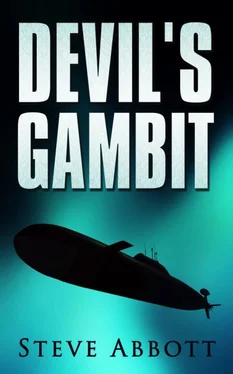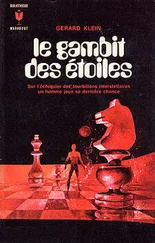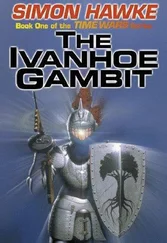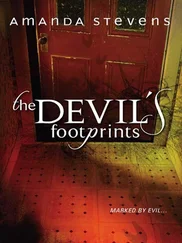Sean paused for a few minutes at the bottom of the bluff. He took a short pull of tepid water from the mouth tube inside his mask. He was going to have to go on course to get back in shape after all of this was over. Every foot placed carefully before the other, he started to travel the long distance to the remains of the Depot Warehouse and the rest of the team.
The remains of the warehouse loomed ahead in the shimmering heat, a twisted black, modern sculpture of war. Machine gun, rocket fire and heavy artillery had ripped through the sheet metal walls. The rocket motors stored inside and out of the structure had been ignited or blown apart. The fierce heat of the conflagration had melted some of the building girders into strange shaped pools of cooled metal. In some places, even the sand had been fused into glass. Sean checked for irregularities in the ground ahead of him. Another team had recently lost a member. He had stepped on an unexploded mortar bomb and been blown to bits. With the volume of fire concentrated in such a small area, there were bound to be more than a few unexploded nasties lying in wait for the reckless and unobservant.
Shute’s voice crackled over the communications net again, “I can see the main dump. It’s a hundred feet behind the warehouse. Looks like the biggest yet we’ve come across. Close up on me and we’ll get a better look, and for God’s sake, take it slow and watch where you put your feet.”
Sean neared a scattered group of scorched yellow warheads. Even in its poor condition, the dreaded initials GB in Cyrillic and Arabic were clearly visible on the side of the one closest to him. GB was the symbol for “Sarin,” a deadly neurotoxin, delivered by artillery shell or, in this case, a rocket warhead. Exploded above the target area, it spread over the unfortunate troops or civilians below. Cautiously, he moved to it. The warhead’s fuse socket sat empty; no danger of explosion; a small relief, considering. Sean crouched and gently brushed away soot and heat-peeled paint from the shell’s surface. Small, hairline cracks crazed back and forth across the warhead surface. Sean gave the shell a tug; it rose easily out of the desert soil. It was too light; the Sarin payload inside had leaked into the soil beneath. Sean looked at the stained ground under the shell’s resting place.
The chemical had a short half-life before breakdown, at least normal Sarin did. It even acted as fertilizer in its inert state. The Syrians, however, were good at improving the work of others. Proving they had tampered with the formula would be nearly impossible. Nor was it likely that the Syrians would give them any proof of just how far they had taken this lethal product.
Sean put the shell back down beside the shallow depression it used to rest in. He pressed the “Talk” stud at his Larynx. “Addison here.”
Shute was quick to respond, “Go ahead Sean.”
“They had Sarin. The area I’m in has from fifteen to twenty, 120 millimeter warheads loaded with the stuff. The one I’m looking at has been breached.”
“Get a soil sample and mark the area with a red flag. Shute out.”
“Roger.” Sean took a red flag out of his backpack, telescoped the body out to its full eight feet and jammed it in the sand beside the shell. He scooped up a sample of the darkened earth and put it into a small bag. He plugged a Geotag button into his logging unit, a blocky device that hung from his hip and coded its chip with the discovery location and probable chemical content. The chip was then adhered to the sample bag with its sticky backing. The Geotag system was a better solution than trying to use a pen with the suit on. Once everything was secure again in his backpack, he started again towards the rest of the group. It took him ten long minutes to cover a few hundred meters.
The whole group stood in silence, astounded by the sheer size of the dump. It filled the narrow defile walls of the crescent-shaped valley. A rocky shelf outcropping had hidden the true size of the place from the vantage point of their Land Cruisers. The terrain even shielded it a great extent from the prying eyes of low-flying aircraft. All of these natural defenses hadn’t mattered in the end. What had once been neat and orderly piles of munitions, now looked like the Devil’s junk pile.
Shute shook himself free from the monstrous vista first. Shock and anger permeated his voice. “Damn and blast! Well that bloody tears it. We’ll never know how much stuff they had here and if we ask, the bastards are just going to pull the same old ‘the records were destroyed’ routine.” He turned his mask-clad face to Sean. “You had better get word to your friends in Whitehall. There’s no telling how much of this stuff disappeared through the back door.”
Sean looked over the narrow defile walls. “I doubt if any of it has.”
“What are you talking about?”
Sean shook his head, a difficult thing to do inside a CD suit. “You would have to be a complete nut to try and transport any of this stuff out of here in its current state. They blew the absolute shit out of this place. I would guess that almost every munition here has been damaged in some way. So far I have seen six sites and every one, except for the size of this place, looked the same. Terrorists, even the ones of the Islamic extremist sort, aren’t going to worry themselves mucking about in ammo dumps full of nerve gas and chemical agents. They’ll find other, safer sources.” Sean pointed to individual piles. “This crap can only be done by countries. Not by some backyard bomber bent on dying for Allah. We even helped sell these bastards the ingredients to make this mess.”
Frustration welled up inside Sean. The export trade in Chemicals and the machinery to process them was big money. Money meant more jobs and jobs meant more votes and power for the government. Because of the huge monetary gains, it was nearly impossible to restrict and monitor all the sales of dangerous technologies and chemicals.
“If not us, then somebody else” was a common argument used by industrial countries engaged in the trade. It made possible end results distant and sanitary. Sean, on the other hand, got to see the human side, the bloated bodies and sightless eyes of the victims of chemical attacks.
To walk in the hand of tons of chemical deaths for the last few weeks in his covert role was mentally eroding. It took a toll far worse than even the blackest of operations.
Shute cut him off with a sharp hand gesture. “Make your report as you see fit, but don’t give me a bloody diatribe and don’t preach to me. I’m the one who wrote the book on this stuff, remember?”
Sean was diffident. “Well, that’s the problem isn’t it? You wrote the book, but it’s always somebody else’s job to clean up the mess.”
Shute softened his tone and tried another tack. “Look, we might as well get out of here. The heat is getting to us all. Fighting among ourselves is counterproductive. Let’s get back to the Land Cruisers and call it a day. This site is going to be marked off as a double red anyway. And we’ll need to arrange cleanup with the Syrians.” He swung himself around to face the bluff. “Slow and easy people; single file please.”
Sean watched Shute’s receding back, not sure what he felt. Anger at being cut off or satisfaction at having gotten a rise out of the Australian? Maybe the man was right, the heat was getting to them all, but something inside Sean told him it went deeper than that.
The team was slow to form behind Shute. As was his habit, Sean ended up near the end of the line. Progress was slow. Each member would stop from time to time and take film footage, take a sample, and Geotag it. Sean stopped to take a sip of water. Instinct made him turn around. The American specialist ten meters behind him and last in line turned from the path of safety worn in the sand by the others, and walked towards a clump of debris, which had caught his attention.
Читать дальше












